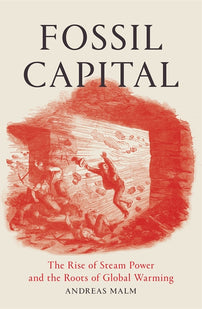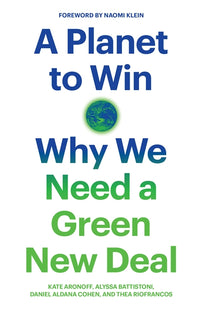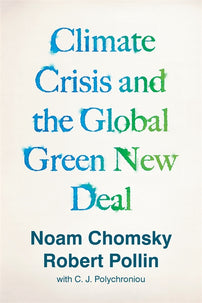Planning without political constraint imposed on economic actors is not real planning
An ecological transition is essential to ensure the continued habitability of our planet, but any such transition will be unsuccessful if it does not come as much from below as from on high. In this article, Cédric Durand and Razmig Keucheyan outline the path to a democratic green transition.

**This article was published by Le Monde in June 2022.
The new project for “ecological planning” announced by France’s government has been posed only in the vaguest terms. In a column for Le Monde, the economist Cédric Durand and the sociologist Razmig Keucheyan argue that top-down initiatives will not be enough to make the ecological turn into a success.
After decades of neoliberal fantasies about the virtues of the self-regulating market economy, today we see something of a return of the repressed: for planning is coming back into favour.
Our collective economic destiny — and the need to govern it together — is surely inescapable. Endemic financial instability, environmental crisis, popular uprisings and the rumblings of war are re-asserting the primacy of politics over economics. So, to plan is to look out, together, in one same direction. But what kind of outlook does this mean? The new project for ecological planning coming from Élisabeth Borne’s government is still posed in only the vaguest terms. More worryingly, the very principles on which it is based have not been made clear. While this project has been directly associated with the prime minister herself — and this itself sends a strong signal — we are still waiting for the intervention that would give a clearer sense of its spirit, and the institutional architecture that could give it substance.
The first indicators that we have available suggest a rather hard-to-read and fragmentary assemblage of competences, which will be difficult to manage. The secretary general in charge of this portfolio at the prime minister’s office has thus been handed a mission with unspecific contours. It does not commit him to very much: his mission is “to coordinate the development of national strategies” in terms of ecology. In short, we are still looking for reasons to be convinced that the talk of ecological planning from Emmanuel Macron’s government is not a mere talking point for electioneering purposes, aimed at taking a bite out of Jean-Luc Mélenchon’s support.
The first foundation of planning is that it must be democratic. In its recent report on the subject, France Stratégie highlighted this concern. If the aim is indeed to structurally transform the energy supply on which our society is based and, more broadly, our relationship with nature, then this needs to be able to rely on rock-solid legitimacy. That is, one much more solid than the kind provided by short-lived electoral victories. To secure this legitimacy, this effort must indispensably be based on popular participation, territorial rootedness, the involvement of various economic sectors and associations, and the light that can be shed by scientific communities. It must be organised by a body that is specifically designed to last over the long term. Such a body could be attached to the prime minister’s office: indeed, a form of political centralisation, which allows certain objectives to be prioritised, is to be desired. But it must also have permanent links with Parliament, where the various sectors and sensitivities that cut across society are more widely represented.
[book-strip index="1" style="display"]For the ecological turn to succeed, rules issued from above will not be enough. This will also require initiatives at all levels, in order to bring these rules to life. A precondition for this is the proper mapping of the issues at stake. Today, the statistical apparatus regarding ecological matters is poor, and much less integrated than in the economic, financial, and social fields. The ground zero of ecological planning is therefore the formation of public ecological statistics and private ecological accounting that will finally allow for an exact awareness of what we are doing to nature. Democratic deliberation requires we exactly know this in order to be able to make decisions accordingly. Today, we are a long way from that. A real mandate, as well as the necessary human and financial resources, must therefore be given to the INSEE [statistics agency] and other knowledge-producing institutions in order to develop and disseminate ecological information.
As Chalmers Johnson wrote with regard to the Japanese developmental state, the crucial question in terms of policy effectiveness is: “Who is in charge”? Where is the control room and what means does it have to impose its priorities? To be successful, ecological planning must have an administrative access to the state apparatus’s most crucial centres of decision-making on economic matters: in particular, the Banque de France, the Deposits and Consignments Fund, INSEE, the Directorate for Research, Studies and Statistics and the sub-directorate for sectoral policies within the Ministry of the Economy and Finance. Without such a chain of command, planning will remain an afterthought — an area of cooperation whose priorities will always clash with the urgent pressures coming from the strongholds of economic and financial power.
As for its method, ecological planning could be based on simple recipes, based in part on France’s experience after World War II. The main tools to be used are public investments and commissioning, budgetary planning, the dismantling of harmful activities, and credit policy. Their use must be conditional on actors’ compliance with the environmental objectives set in the plan, at the level of local territories and the branches of the economy. This conditionality itself makes these objectives binding. Let us emphasise this point, so that there may not be any misunderstandings: planning without political constraint imposed on economic actors is not real planning.
Such constraint is not limited to the a posteriori regulation of market activity. Rather, it has to channel this activity towards the objectives deemed desirable by the people and their representatives, notably through public control of investment.
Without strong democratic legitimacy, without the proper means to observe the problems which takes responsibility for, and without the administrative mechanisms that can make it effective, ecological planning is nothing but window-dressing. Its name evokes a sense of urgency. But without substance the word rings hollow, much like a government which vaguely voices it without being able to rise to the challenge of the present.
Cédric Durand is an economist at the University of Geneva
Razmig Keucheyan is professor of sociology at the University of Paris
Translated by David Broder




